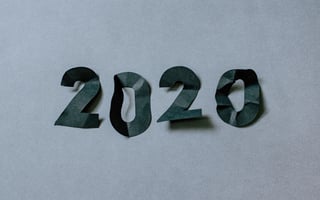One of the benefits of the lockdown and working from home is I get to see and hear more media...
Radio might lack the glamour of TV.
And it may not create the storms that newspapers can generate. But it can grab attention like nothing else and it presents a great opportunity for your organisation to get its message across.
According to Ofcom’s latest news consumption figures, 43 per cent of adults in the UK say they consume news through the radio.
So, if your hard work in pitching to journalists has paid off, how can you make the most of the opportunity a radio interview presents?
Here are 12 tips from our media training courses that will help your radio interviews, whether they take place remotely or face-to-face in the studio.
Start strongly
Radio interviews are often short – the average radio interview is about two and a half minutes long.
And in addition to the time constraint, you are also talking to an audience that is multi-tasking. People typically listen to the radio when they are doing something else, like driving, working or cooking.
You need to grab their attention by making sure you get to your message at the start.
‘Thanks for having me’
How many times have you listened to a radio interview and the first thing a spokesperson says is something like ‘thanks for having me’ or ‘thank you for this opportunity to appear’?
We find on our media training courses that the instinct to thank the journalist is common.
But this is something that needs to be avoided.
As we’ve already pointed out, radio interviews are typically short, and this wastes some of that precious time. And while you may feel it is polite, it is boring for the audience and likely to cause them to switch off.
Additionally, if it follows on from a difficult opening question, it just sounds a bit weak and could be seen as an attempt to avoid the question.
It is also worth remembering that politeness isn’t going to make the journalist go any easier on you.
Keep the pleasantries to a simple hello.
Energy
Listeners are likely to drop out if you sound flat.
You need to bring energy to your interview and show that you are passionate and enthusiastic about your subject. Try to at least match the energy levels of the journalist carrying out the interview.
Be yourself
The best radio interviews have the feeling of a conversation.
So, aim to be yourself and use the same language you would use if you were talking to a friend or colleague over coffee or in a pub.
Try to put messages into your own words (within corporate guidelines) and be prepared to share relevant anecdotes and stories about yourself that help reinforce your points – people love to hear stories about other people.
Don’t ramble
Long, rambling answers are hard for both the journalist and the audience to follow and there is a risk they may be misunderstood or harshly edited, in the case of pre-recorded interviews.
Try to make sure your answers don’t go beyond the 30 second mark. If you exceed that you are likely to be interrupted.
But avoid short answers – they just lead to more questions being asked and control of the interview being surrendered.
Tread carefully with notes
Spokespeople sometimes feel the radio format allows them to take extensive notes into an interview.
You may remember last year the footage that emerged of Priti Patel’s briefing notes as she was interviewed on Radio 4’s Today programme.
The problem with notes is that it makes interviews sound scripted and robotic, particularly when spokespeople fall into the trap of simply reading them aloud.
There is also the risk that an extensive briefing document will just add to the nerves they may be feeling.
While it is crucial spokespeople are prepared and read their brief, that reading should not take place in the interview.
Do your homework
We regularly talk about the importance of preparation for media interviews and, of course, this applies to radio interviews.
As well as making sure you know the message you want to get across and ensuring you have anticipated the difficult questions that could get asked, you also need to make sure you know who you are talking to.
Some stations have big personality presenters, who speak their mind, and it can be hard for highly experienced spokespeople to impose themselves on the interview and take control.
And there is a big difference between appearing on the breakfast show of LBC or Talk Radio, than speaking on your regional BBC station.
You can be sure these presenters and their producers are doing their research on you, so make sure you know about them.
Have a goal
You need to go into a radio interview with a clear purpose and aim. Think about what you want the audience to do as a result of hearing what you have to say. Do you want them to act or think differently?
Don’t go into the interview just hoping to survive or not say anything embarrassing.
Bring the warmth
You want the audience to like you so you need to convey warmth when you appear on the radio.
This can be tricky, especially for those spokespeople with little experience.
But just smiling can help. One of our current working journalist tutors says that “you can hear a smile on the radio”. It helps to bring some of that energy and enthusiasm we’ve been talking about. Similarly, the audience will sense if you are talking with a frown.
Losing the formality can also play a crucial role here.
You are likely to be on camera
If your interview is going to take place in a studio – and they are starting to happen again now - then be prepared to be on camera.
Many radio stations also make videos of their interviews – even ones that take place remotely - and that content is then used on social media channels, as was the case with the Priti Patel interview we mentioned earlier. Similarly, when Boris Johnson made a cut-throat gesture during an LBC interview, it caused many to speculate he was unhappy with the line of questioning.
Sometimes videos of radio interviews even go on to feature in television interviews. One of the most infamous examples of this came during the 2010 general election when footage emerged of Gordon Brown sitting with his head in his hands as a journalist played a clip of him calling a Labour supporter a ‘bigoted woman’.
Abrupt endings
If you are doing a radio interview over the phone, you might find that the interview ends abruptly and the line goes dead.
This doesn’t mean you’ve done a bad job or the interview has gone awry. It is simply a reflection of the time-pressed nature of radio.
Go live
We often find on our media training courses that spokespeople have a tendency to opt for pre-recorded interviews.
One of the key reasons is that they offer an apparent safety net if things go wrong.
But opting for live interviews typically improves the performance of spokespeople. The adrenaline kicks in and they raise their game knowing that they only have one attempt to get their message across to the audience.
Consequently, they can come across as having more energy and enthusiasm for the subject they are discussing.
Live interviews may be shorter than pre-recorded ones, but they typically result in more air time. And, as a live interview can’t be edited before it goes out, you have complete control of what the audience hears.
How good is your media interview preparation? Our FREE media interview preparation eBook will guide you through everything you need to do to be best prepared for a media opportunity.
Media First are media and communications training specialists with over 30 years of experience. We have a team of trainers, each with decades of experience working as journalists, presenters, communications coaches and media trainers.
Click here to find out more about our journalist-led media training courses.
Subscribe here to be among the first to receive our blogs.




